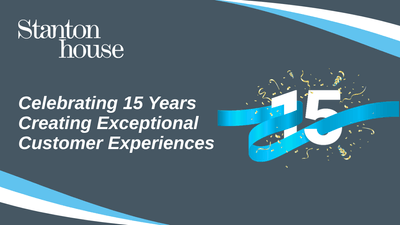

How to Develop a 'Coaching Culture' in Your Organisation
Coaching unlocks talent – generates ideas, builds self-esteem, improves self-confidence, helps people to be responsible and accountable for their plans; it gets people ‘unstuck’.
Coaching is of course not always the answer. You can’t coach someone who does not have the resources or knowledge within them. You also can’t coach someone who is ‘un-coachable’. Sometimes people are not open to learning something new and this makes coaching almost impossible. Sometimes teaching, mentoring or another approach is what is needed instead.
However, committing to the development and ongoing focus of creating and upholding a coaching culture, where your leaders have the skills and knowledge to be able to employ a coaching style of leadership, where people are stretched and supported…we think is always the answer.
There’s no doubt that the development of a coaching culture, that speaks to the Vision and Values of the organisation, correlates directly with higher performance and a more engaged organisation.
The Coaching Culture describes this in the following way:
“A coaching culture is a place where authentic leaders and managers help people to grow, thrive and perform through effective conversations and honest feedback underpinned by trust”
In short, people are happier, develop further and stay in organisations longer when a coaching culture exists. People can see the part they play in an organisation and understand how to make the best contribution that they can. Companies flourish when this happens. What’s not to love about that?
So, how can you create a coaching culture in your organisation?
7 tips for creating a coaching culture
- Engage with someone who can support your leadership team to understand the benefits of creating this culture. Perhaps you have an amazing internal People Team already who can guide you through this, or perhaps you need to look externally for an expert? Either way, find someone who is qualified and passionate about it!
- Culture is the shadow of the leader so it’s essential that the Senior Leadership Team are on board with the intent of coaching. Develop the practical coaching capabilities of your SLT first – this will not be quick work if you do not already have a coaching programme in place, but it will be an investment that pays back dividends. Critically you will need buy-in and commitment from the very top.
- Develop the practical coaching capabilities of your managers and others in the business who regularly play a supportive role to your team members. Invest in their development, build this into your management and leadership programmes and support those who show a real interest with professional coaching development. There are lots of providers out there (see Training Provider information at the bottom of this blog).
- Create peer development cohorts. This is a great way to build relationships across different divisions and teams. Carve out time for these cohorts to practice new skills on an ongoing basis, in a psychologically safe environment. Coaching is like a muscle, because it is hard work, without practice, we can get lazy and revert to easier and less challenging leadership approaches. Taking this approach will mean that not only will coaching skills be developed but also trust and deeper relationships will form across the business, leading to a greater sense of belonging and better organisational collaboration.
- Practically build a coaching approach into all 1:1’s including, reviews and personal development plans. Train your leaders in how to use their coaching skills in all conversations.
- Speak about coaching and the climate it creates. Share great articles as you find them, read books or listen to podcasts to support your coaching skills. There are so many great books, podcasts and resources that could support your focus on developing a coaching culture in your organisation. One of our favourite books is ‘BECOMING A COACH; The essential ICF Guide’. This provides an overview of many practical ways to build your coaching competence, all underpinned by the relevant psychological theories that have been responsible for influencing how many people Coach today.
- Support your leaders to become accredited coaches if they show a true passion for it – you will never regret that investment.
Helpful resources
Below are some resources to support your research into developing a coaching culture in your organisation:
Coaching training providers:*
AoEC: https://www.aoec.com/
Hult Ashridge: https://www.hult.edu/ashridge/events/special-interest/the-gift-of-coaching/
Henley Business School: https://www.henley.ac.uk/business/coaching
* other providers are also available
Coaching governing bodies:
ICF: https://coachingfederation.org/
AC: https://www.associationforcoaching.com/
EMCC: https://www.emccglobal.org/
If you would like to find out more about how Stanton House is developing a Coaching Culture, please contact Esther Boffey our Senior L&D and Inclusion Partner.


















